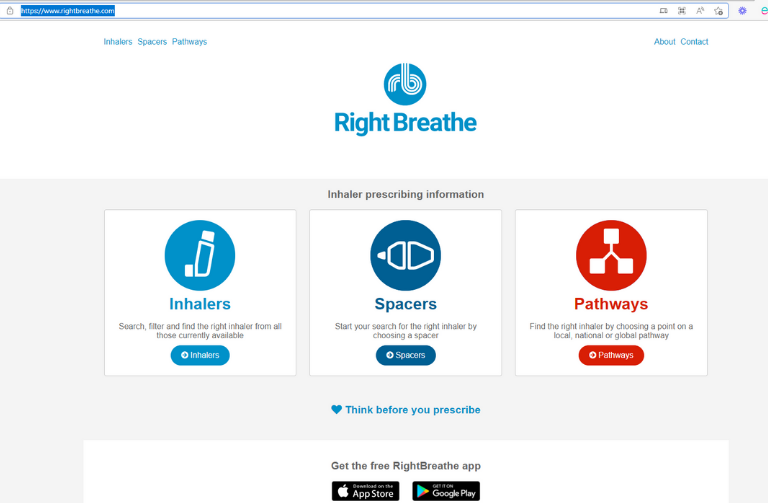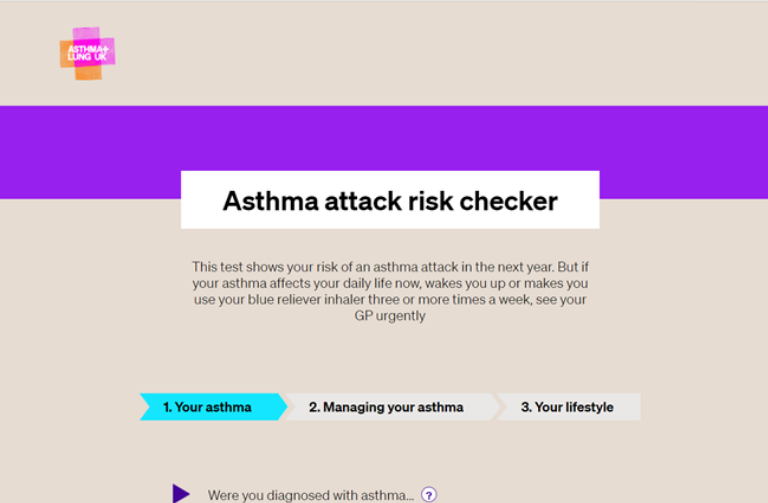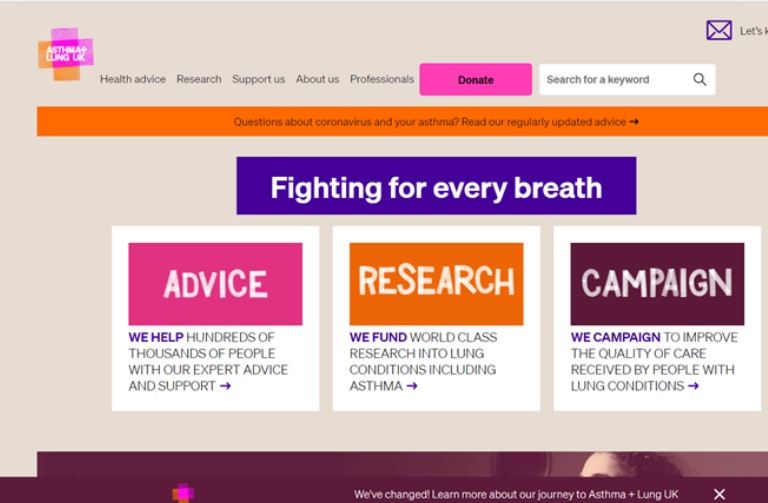With treatment, most people with asthma can live normal lives. There are also some simple ways you can help keep your symptoms under control.
You can find out more about asthma on the NHS UK website.
Using your inhaler correctly
www.rightbreathe.com is a brilliant website with instructional videos on using spacers, and information on the different types of inhalers you may be prescribed. Once you find the inhaler or spacer you have been prescribed, you can watch the training video.
Alternatively, your local Pharmacist is trained in inhaler technique, and you can always contact your nurse at the surgery via PATCHS for advice if you’re still not sure.

Using your preventer inhaler every day even if you feel well – your preventer medicine builds up protection over time. It stops your airways from getting inflamed, which means you’re less likely to react to your triggers.
Carry your reliever inhaler with you everywhere – so you can deal with unexpected symptoms quickly.
Go to your annual asthma review – we will invite you to a review with one of our nursing team each year. It’s a chance to check out your inhaler technique and make sure you’re taking the right medicines in the right doses to keep your symptoms under control.
You can also:
If you smoke, get support to quit – Smoking makes asthma symptoms worse and puts you at much higher risk of an asthma attack. It also means your asthma medicines won’t work as well. Visit our wellbeing page to find out more and about local services that can help you.
Get some advice on weight loss to improve symptoms – losing some weight can make a real difference to your asthma and how well you can manage it. Visit our wellbeing page to find out more and about local services that can help you.
Get active – to improve stamina and help your lungs work better. Visit our wellbeing page to find out more and about local services that can help you
Get your flu vaccine – even if you have mild asthma, flu can trigger asthma symptoms and put you at risk of an asthma attack so get your vaccine when you are contacted by us in the autumn.
Identify and avoid your triggers – try and make a note of where you are and what you’re doing when your symptoms get worse. Some triggers can be hard to avoid, but it may be possible to avoid some, such as dust mites, pet fur and some medicines. NHS UK has sone useful advice about how to prevent allergies.
Asthma Attack Risk Checker
Asthma and Lung UK have an Asthma Attack risk checker that’s a simple check for people with asthma who are 12 years or older. It only takes a few minutes and will show your risk of an asthma attack. You’ll also get a personal report packed with simple tips and advice to help you deal with your asthma.
Asthma hospitalises someone every 8 minutes. Don’t let it be you.


